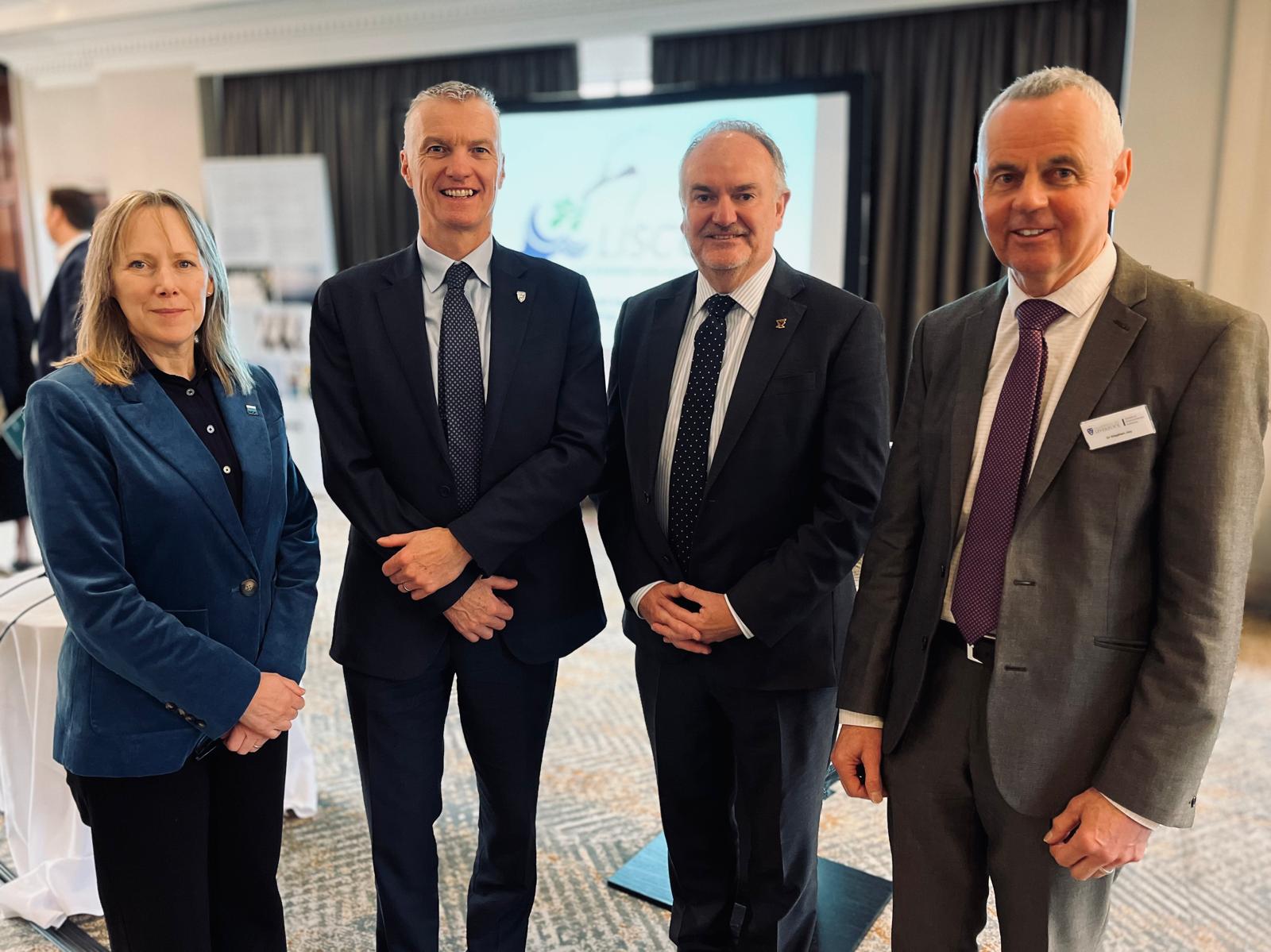The UK’s coastline has, for centuries, been vibrant hives of trade, industry and exploration of our ocean.
Liverpool is no exception. It’s one of the UK’s biggest ports, thriving at its location on the River Mersey within a major estuary system – connecting this coastal region with the world.
Today, it’s a city and region that is driving a vision for a net zero maritime future.
This vision was set out at the Liverpool Institute for Sustainable Coasts and Oceans’ (LISCO) ‘Maritime Contribution to Net Zero’ event in Liverpool on November 14.
The National Oceanography Centre (NOC) is a member of LISCO, alongside University of Liverpool and Liverpool John Moores University.
NOC Chief Scientist Professor Penny Holliday joined Professor Tim Jones and Professor Mark Power, from the University of Liverpool and Liverpool John Moores University respectively, and LISCO director Dr Stephen Jay as a speaker at the event.

All four highlighted the importance and value of collaboration, across research, industry and government, including the city and city region, to support sustainable coasts and oceans.
The sold-out event at Liverpool’s Delta Hotel also heard about the Liverpool-Belfast Green Shipping Corridor proposal.
A lot of work has been done already into how to overcome policy, investment and technology hurdles to create this vision, including developing and shortlisting potential pilot projects.
There are already proposals being worked on that could help support the green shipping corridor, like the Mersey Tidal Power project, offshore wind targets and a goal to have >20% of hydrogen for power in the region by 2040. Shipping companies are also developing alternative fuels and investigating their port infrastructure.
There are challenges. How do we get renewable energy where it needs to be for green shipping? What’s the role of policy and investment? Where do sustainable coastal communities come into the picture?
There’s no silver bullet. Breaking it into smaller pieces is one way to tackle it and collaboration with cooperative organisations like LISCO is part of the puzzle.
NOC's role in our maritime future
At NOC, we’ve been playing our part in looking at how to help decarbonise shipping through trialing alternative fuels, like hydrotreated vegetable oil (HVO).
Through our research, we’re also focused on the people who are affected by the ocean, most notably at the coast and sea-shelf areas. This is about the infrastructure and the ecosystems in these areas and how these are protected from hazards related to the ocean.
Our ambition is to create the knowledge that allows blue economies to be developed and thrive in a safe and sustainable way.
We also research how you can extract renewable energy in the marine environment, but also the effects of doing so. We’re also looking at blue carbon, how the ocean can help sequester carbon through different interventions and understanding the effectiveness and implications of these.
We provide impartial evidence to support policy and planning for these activities, which will be increasingly important in coastal economies.
What’s positive, as we saw at The Maritime Contribution to Net Zero event, is that there’s huge interest and engagement to find solutions to these challenges.
We heard that this region is ahead of the curve in what needs to go into developing how green shipping corridors are developed.
We heard about the emerging ecosystem and collaborations that can help to make these ideas happen.
Cooperation, through groupings like LISCO, and partnerships, developed through events like this, will be hugely important for achieving the goals we set out.
At NOC, we are happy to support these initiatives and play our role in the Mersey maritime sector.